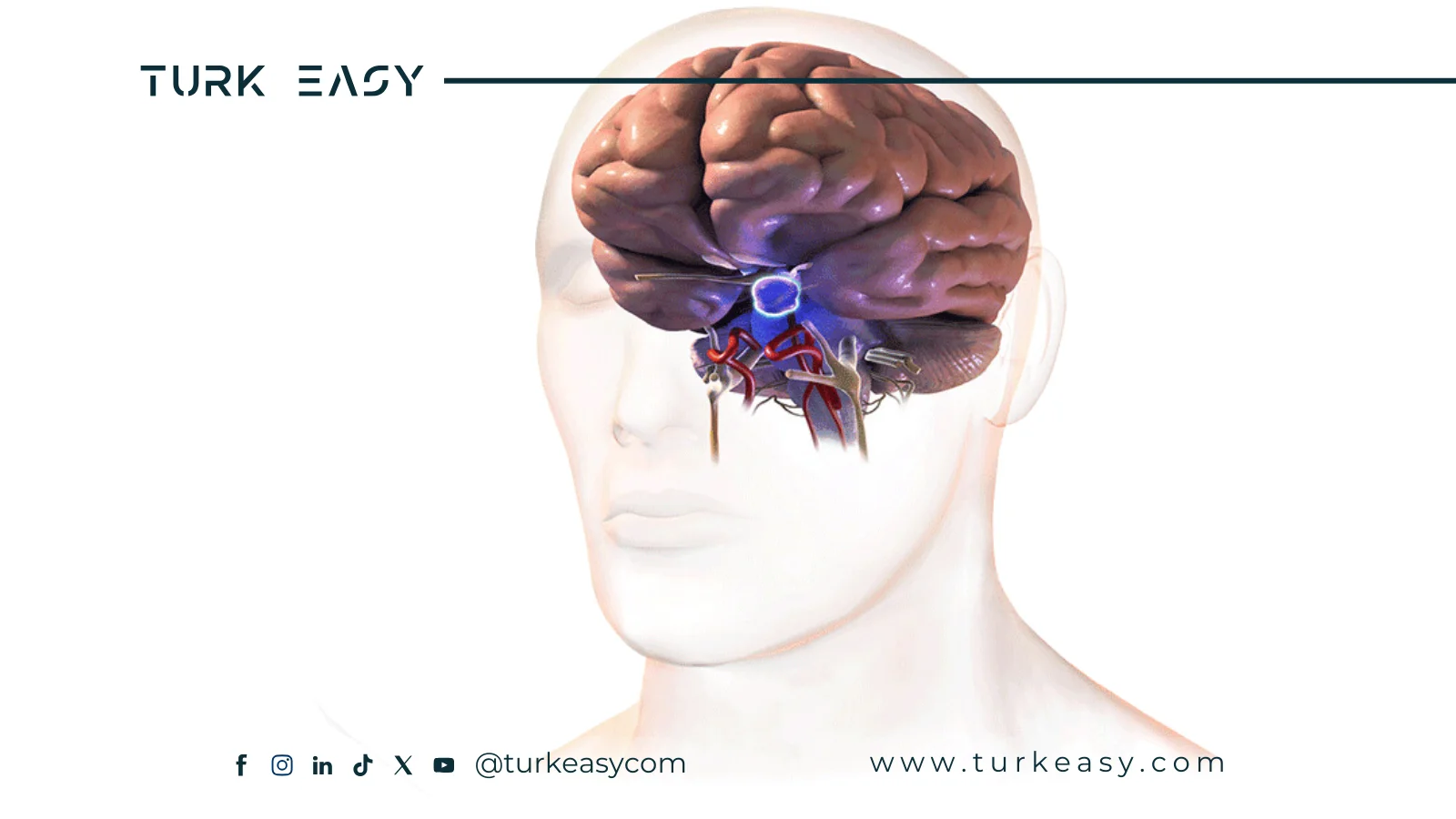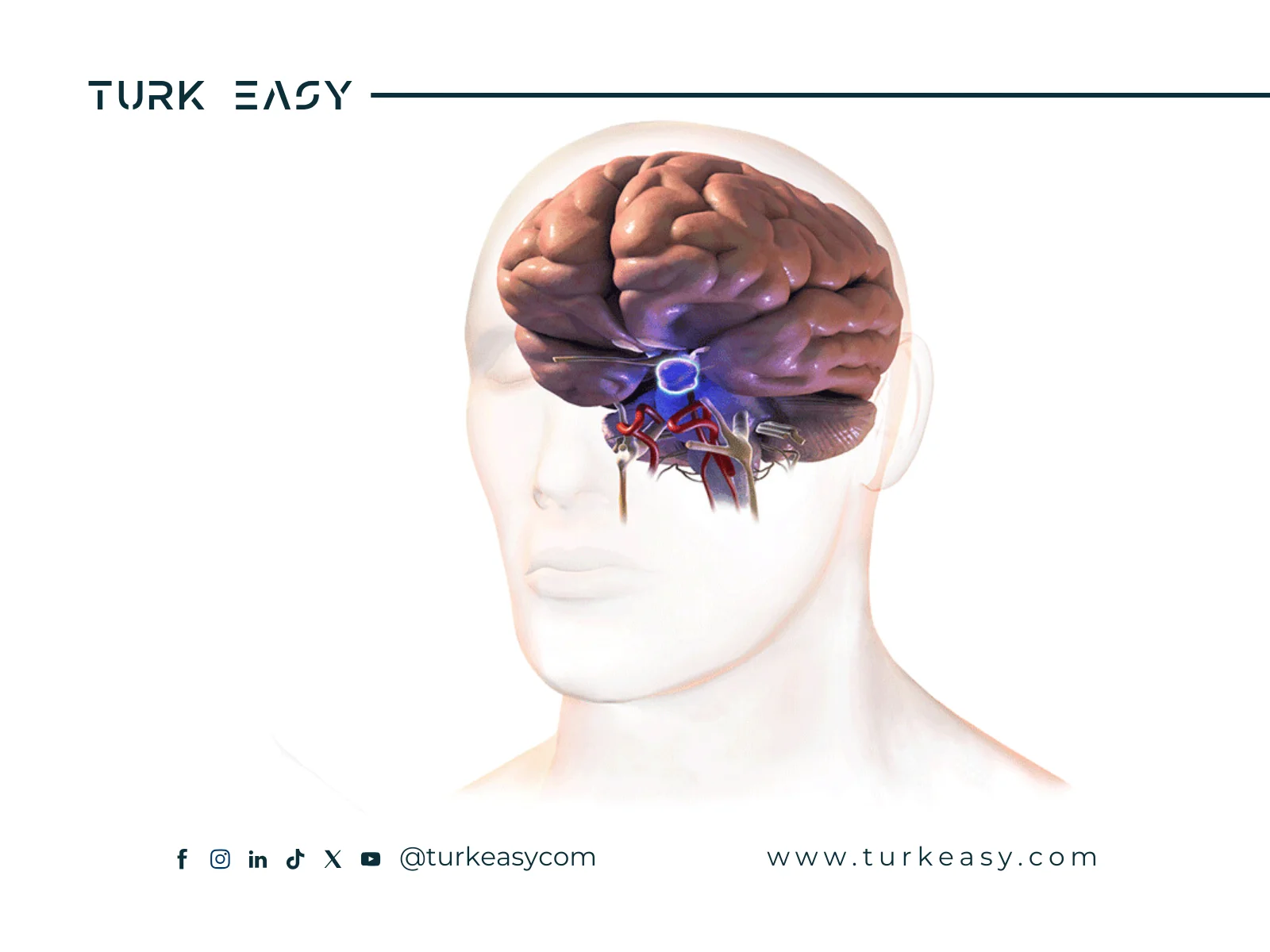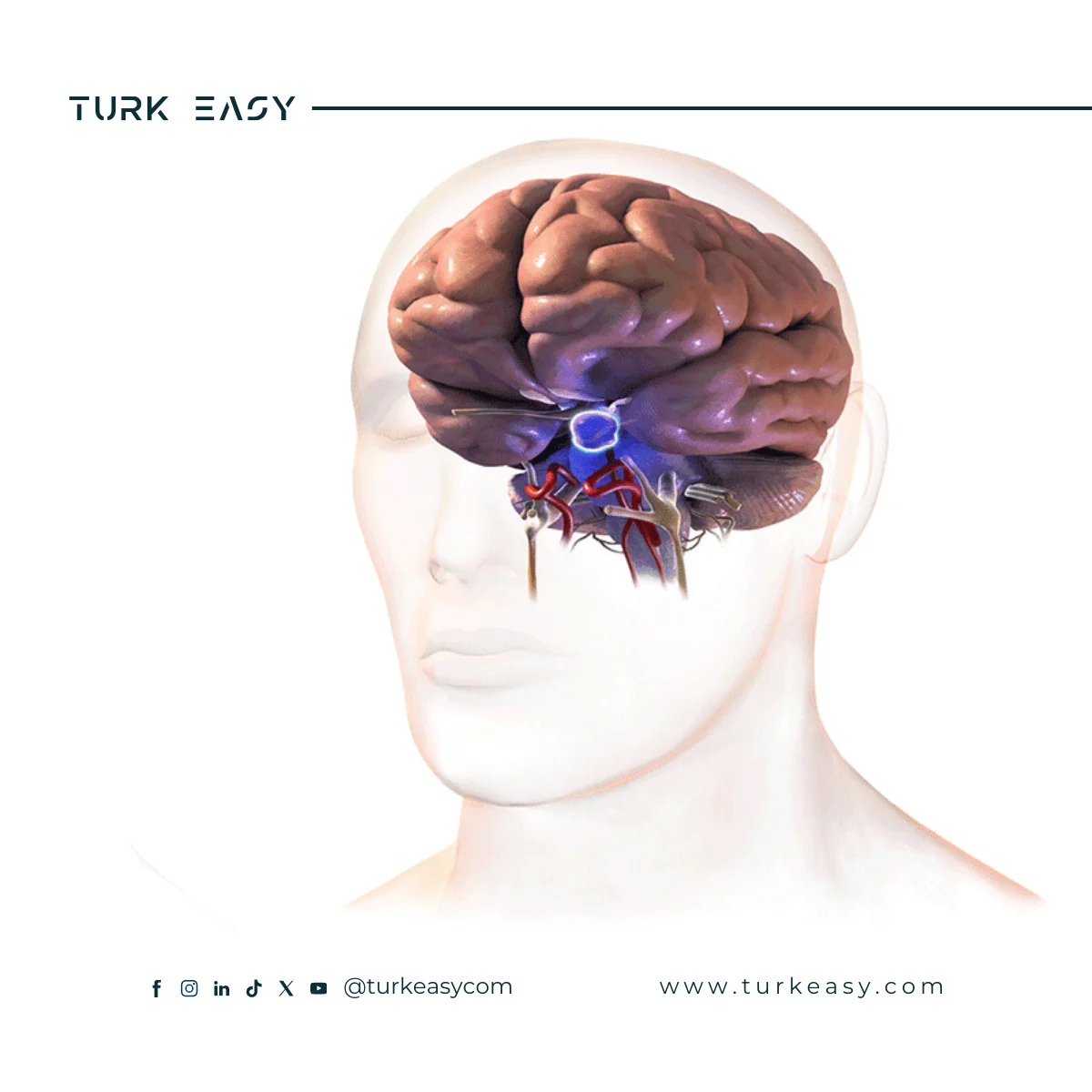Pituitary Tumors
Pituitary tumors are abnormal growths in the cells that make up the pituitary gland, impairing its regulation of the secretion of many hormones essential for vital functions in the human body. All pituitary tumors are non-metastatic, meaning they do not spread to affect other organs. Large tumors affecting the pituitary gland are those larger than 1 cm and are medically termed "macroadenomas". Large tumors can cause pressure on brain tissues and bones, in addition to negative effects on hormone secretion. Tumors smaller than 1 cm are considered small-sized tumors, medically termed "microadenomas".
- Pituitary tumors are classified into three types: benign tumors, invasive adenomas, and malignant tumors. Benign tumors represent the vast majority of pituitary tumors. In terms of the percentage of pituitary tumors compared to other brain tumors, they represent between 10-25%, with the remaining percentage comprising other types.
How are Pituitary Tumors Treated?
The choice of treatment method or methods for pituitary tumors depends on the type and size of the tumors, as well as the physical condition and age of the patient. Treatment options include:
Surgical TreatmentSurgical intervention is important for treating pituitary tumors in the following cases:
- When the disease spreads to the brain tissues surrounding the pituitary gland.
- When the tumor affects the production of one or more hormones.
- Additionally, when the disease affects vision due to pressure on the optic nerves.
Radiotherapy is considered appropriate when medications cannot eliminate or stop the growth of pituitary tumors. It can be used in conjunction with surgical treatment as a complement.
MonitoringThis method is used when there is no significant effect from pituitary tumors due to their extremely small size. The doctor monitors the patient regularly and performs hormone level tests, as well as MRI and CT scans to monitor the condition, intervening immediately if complications arise.
Medical TreatmentThe type of medications prescribed by doctors for pituitary tumors depends on the negative effects and symptoms experienced by patients.



